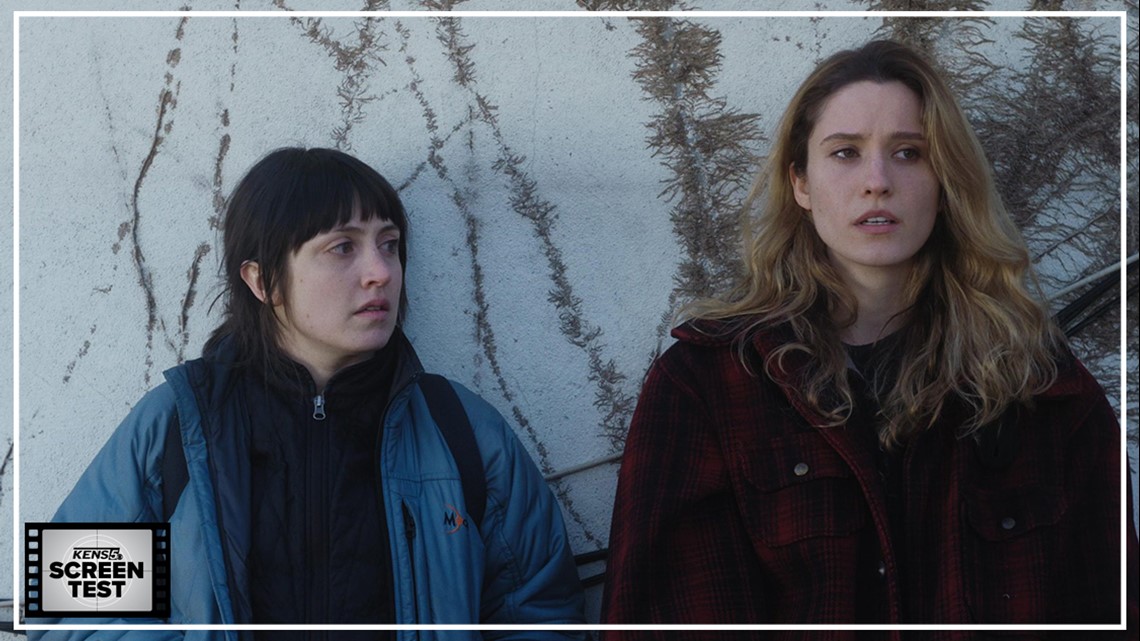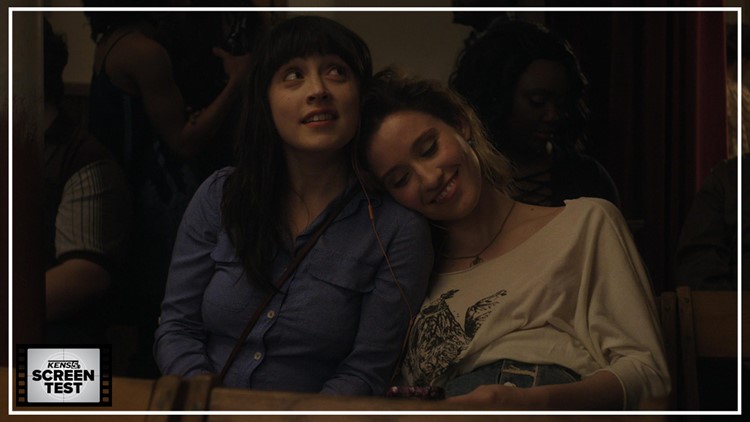Jo and Mara aren’t the typical twenty-something New Yorkers that the movies obsess over. Their livelihoods don’t depend on going out every evening; we don’t see them ensnared in an endless night of unpredictable shenanigans. They drink, but they’re never drunk. They go through a carousel of boyfriends, but we aren’t privy to initial meet-cutes. New York may be the city that never sleeps, but Jo and Mara are quite content making up for everyone else’s lack of an early nighttime snooze. And when Mara gets an unexpected call from Jo late at night, it isn’t because she got her hands on tickets to a secret show.
One of the more orthodox movies of its hyper-realist ilk to come about in recent years, Dan Sallitt’s “Fourteen,” just the 64-year-old director’s third feature since the start of the millennium, is so frank and unsentimental that you’d ask a mutual friend to keep an eye on it if it was a living person. It feels like one of those movies that – if made under slightly different circumstance, or with a different director, or with a stronger loyalty to convention – would’ve had my emotions grasping to drop anchor in some place where the proverbial rock of its central relationship doesn’t crumble away from sheer mundanity or inert inevitability.
Mundanity and inevitability—those two things, like enduring a global pandemic, are very much present in Sallitt’s simmering and stunning drama about the impact of one’s lingering troubles on two longtime friends, and two lives inextricably linked. But the way “Fourteen” staunchly works mundanity and inevitability into the minutiae of its powerfully understated story makes for fresh examination of evolving relationships, and the responsibilities we take on within them without question.
You could say “Fourteen” begins in medias res, thrusting us into the everyday dynamics between two people who would be foils to each other in any other movie, and perhaps in this one too. Mara (Tallie Medel) is a dark-haired busybody with pinprick eyes, balancing multiple jobs while working to find that full-time teaching gig (and she does some writing on the side, for good measure). Jo (Norma Kuhling) is blond-haired, tall and deep-voiced, with strong potential but also struggling to get to morning meetings, let alone hold a job. The two are headed in opposite directions in life, even as they occupy the same stage in the great race of early adulthood. But it’s also natural to wonder how these two friends first met—the unlikeliness of their companionship, clearly one of many years, feels foundational.
And if the unlikeliness of their friendship is foundational to understanding the relationship, so too is the fact Jo and Mara’s bond has become a bit of a one-way street. Tardiness, requests for borrowed money and panicked calls – all from Jo – have begun to bring the frustration out of Mara and chip away at her own priorities. It’s a testament to Medel’s fantastic, muted performance that these frustrations aren’t borne out in words but in sullen looks of familiar acknowledgement as she reacts to yet another call, another text, another occasion where she knows she’ll shoulder enough weight for two, without ever questioning herself. The movie is imbued with thematic significance because of how forthright it is and how mysterious it isn’t—Sallitt shapes mundanity into a chisel to break away at the fourth well until his movie feels like a 90-minute treatise of life itself, with all its humor, devastation and quiet affection. “Fourteen” has whispers of a Kelly-Reichardt-does-Tribeca film in that regard, and its characters’ frank and funny exchanges about sex, lunch and work feels perfectly rooted in the imperfect.
Sallitt’s screenplay is mostly ambiguous about the root of Jo’s problems until a later revelation, until then only hinting at mental illness and drug prescriptions that need to be filled amid another late-night breakdown that Mara attends to. One scene even suggests that Jo’s boyfriends keep Mara on speed dial, panicking that Jo had a knife when he left. “It was just a little theater,” Jo says when Mara brings up the allegation. At some point it becomes natural to go from wondering how these two met to when Mara has had enough and will break it off.
Reportedly made for less than $100,000, “Fourteen” is a micro look at a very specific type of relationship at a very specific stage, but what the film lacks in shading in the backgrounds of Jo and Mara outside their connection, it makes up for by maximizing the poignancy of each single second they aren’t with each other. Witnessing their conversations (and this is a movie built largely around conversations) begins to feel like we’re granted access to the most intimate kind of interaction possible: the ones where feelings are divulged with the weight of history and events we don’t see. “Fourteen” makes it impossible to think Jo and Mara could ever exist without the other, to the point of creating natural intrigue when we see them alone—and you can imagine what insinuations Sallitt is offering in these scenes. It’s where the drama of this smartly crafted character study is rooted in.


“Fourteen” doesn’t pleasure in the ugliness of what may or may not be a relationship that has turned toxic, and Sallitt’s storytelling strategy in that regard is hugely refreshing, and subtly miraculous. As with other people-with-problems parabels, there’s confrontation in “Fourteen,” but they aren’t explosive crescendos of ultimatum so much as brief verbal spars of mutually pent-up frustration. (I actually had to remind myself about one of these arguments, evidence in itself of how “Fourteen” goes against the grain; often in the movies, these scenes are aggressively the only thing we recall because the film insists that to be so.) Mostly, help is asked for by Jo and help is given by Mara without hesitation. That doesn’t mean there isn’t uneasiness or consequence, and it’s in this compromise that “Fourteen” becomes a brilliant and brilliantly conceived exercise in restrained storytelling.
“I haven’t done much for her,” Mara insists at one point, responding to a remark of gratitude from a relative of Jo’s who is clearly aware of the lengths she’s gone to, even if Mara’s constant support is met largely with blunt thanks from Jo herself. The movie mostly keeps its gaze on Mara and where she ends up through the months and years, but it manages not to make an antagonist out of Jo, which must be one of its biggest tricks.
Credit goes to Norma Kuhling for that. Like her screen partner, she is inexhaustibly good. From the opening moments to the heart-shattering final ones, Kuhling and Medel – sporting ordinary clothes, plain affect and the most unceremonious of intentions – are two of the most ordinary characters I’ve seen in a movie this year, very nearly resembling a kind of cinematic paradox without being uninteresting. And as Jo increasingly fails to signal a willingness to be more than a lowest common denominator, Kuhling plays the part with resigned and unspoken acceptance that makes you wonder if Jo ever truly thought she could. It becomes a heartbreaking performance, right at the moments when you least expect it to.
I suspect, and expect, that some people who give “Fourteen” a try will find it difficult to harmonize with the intentional lack of aesthetic pizazz or narrative complexity; this is a work that asks for your attention instead of demanding it, and that yields its own rewards. If you give Sallitt the chance. “Fourteen” is an effective and unusually entrancing movie that shows how life can be – and often is – a journey without branching paths, and how its different residues can hitchhike on our souls through the years. Without us even realizing it.
"Fourteen" is not rated. It's now available digitally from Grasshopper Films.
Starring: Tallie Medel, Norma Kuhling.
Directed by Dan Sallitt
RELATED: ‘Jasper Jones’ Review: Well-crafted Australian drama channels Stephen King's more grounded mysteries



